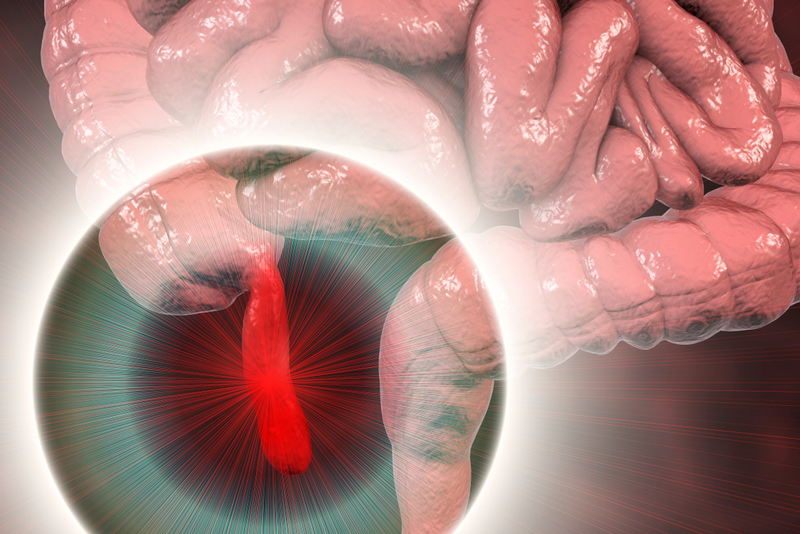Antibiotics better than surgery for uncomplicated acute appendicitis: JAMA
M3 Global Newsdesk Nov 26, 2018
Antibiotics may be just as effective in treating uncomplicated acute appendicitis as traditional surgery (appendectomy), according to results from a seminal study published in JAMA.

These results may put antibiotics in the same category as several other therapies that may become alternatives to surgery, including lanosterol eyedrops for cataracts (under development); onabotulinumtoxinA (Botox) injections for strabismus, diplopia, and blepharospasm; and endometrial ablation instead of hysterectomy for menorrhagia.
We asked lead author Paulina Salminen, MD, PhD, associate professor, and chief of acute care surgery, Turku University Hospital, Turku, Finland, why she and fellow researchers undertook this study.
“It was a very relevant study topic that had not yet been addressed. My study group consists of surgeons and we wanted to assess the possible avoidance of unnecessary surgeries for uncomplicated acute appendicitis as it would work in the long term, it might have a huge impact on surgical practice and the use of resources and decrease the associated morbidity. We knew the earlier studies and aimed to optimize the study setting with a CT scan diagnosis,” she said.
In this 5-year outcome study of patients in the Appendicitis Acuta (APPAC) multicenter, randomized trial, Dr. Salminen and colleagues compared appendectomy with antibiotic therapy for the treatment of uncomplicated acute appendicitis. They randomized 528 patients (18-60 years; 201 women) with acute, uncomplicated appendicitis to either undergo an appendectomy (n=272) or treatment with antibiotics (n=256).
- The use of CT in confirming a diagnosis of uncomplicated acute appendicitis was particularly important in this study, explained Dr. Salminen. “The diagnosis of an uncomplicated acute appendicitis needs to be performed by CT imaging as antibiotic therapy can only be evaluated for uncomplicated acute appendicitis and not for the complicated acute appendicitis cases with perforation or an appendicolith,” she said.
- Antibiotic therapy was comprised of IV ertapenem for 3 days, followed by levofloxacin and metronidazole for 7 days. “The antibiotic used was a broad-spectrum antibiotic with a treatment duration of 10 days, which was chosen in order to compare two efficient treatments, otherwise the comparison to appendectomy would be biased,” noted Dr. Salminen.
In the appendectomy group, the 5-year overall complication rate from surgical site infections, incisional hernias, abdominal pain, and obstructive symptoms was 24.4% (95% CI: 19.2% -30.3%), compared with 6.5% (95% CI: 3.8%-10.4%; P < 0.001) in patients treated with antibiotics. This incidence translates to 17.9 percentage points higher in patients undergoing surgery.
Among the 85 patients in the antibiotic group who had recurrence and underwent appendectomy, most had uncomplicated acute appendicitis (n=76). Two had complicated appendicitis, and seven did not have appendicitis at all. The only significant predictor of recurrence was visual analog scale (VAS) pain score at 2 months.
During year 1, 70 (27.3%) patients initially treated with antibiotics underwent appendectomy (95% CI: 22.0%-33.2%), as did 30 (16.1%) additional patients between years 1 and 5.
The cumulative incidence of recurrence in patients treated with antibiotics was as follows:
- At 2 years, 34.0% (95% CI: 28.2%-40.1%)
- At 3 years, 35.2% (95% CI: 29.3%-41.4%)
- At 4 years, 37.1% (95% CI: 31.2%-43.3%)
- At 5 years, 39.1% (95% CI: 33.1%-45.3%)
Dr. Salminen and fellow researchers found no between-group differences in length of hospital stay (3 days for each), but the median time used for sick leave was 22 days in the appendectomy patients, and 11 days in those treated with antibiotics (P < 0.001).
“Two-thirds of the patients with uncomplicated acute appendicitis were successfully treated with antibiotics alone at 5-year follow-up, and there was no increase [in] severe complications associated [with] potential delay of surgery in the antibiotic patients later undergoing appendectomy. Antibiotics alone [are] a feasible, viable, and safe option for CT-confirmed uncomplicated acute appendicitis and an alternative to surgery,” concluded Dr. Salminen.
“Further research is naturally needed, and the patient perspective is an important factor,” she continued. “Patients need unbiased information about treatment options and the pros and cons. Then they can make an informed joint decision with the treating surgeon to choose the optimal therapy in that patient's current situation,” she added.
“As we now know, antibiotic therapy is efficient and safe even at long-term follow-up, future studies need to focus on optimizing the antibiotic regimen and treatment—ie, less broad-spectrum antibiotics, only [oral] antibiotics, shorter duration and shorter hospitalization, maybe even outpatient treatment,” continued Dr. Salminen.
She revealed that they currently have three ongoing trials designed to determine what optimal antibiotic therapy is, compare antibiotic treatment with placebo, and to assess the microbiologic etiology of complicated and uncomplicated acute appendicitis.
This trial was supported by the Mary and Georg C. Ehrnrooth Foundation, a government research grant (EVO Foundation) awarded to Turku University Hospital, and a Turku University research grant.
This story is contributed by Liz Meszaros and is a part of our Global Content Initiative, where we feature selected stories from our Global network which we believe would be most useful and informative to our doctor members.
-
Exclusive Write-ups & Webinars by KOLs
-
Daily Quiz by specialty
-
Paid Market Research Surveys
-
Case discussions, News & Journals' summaries